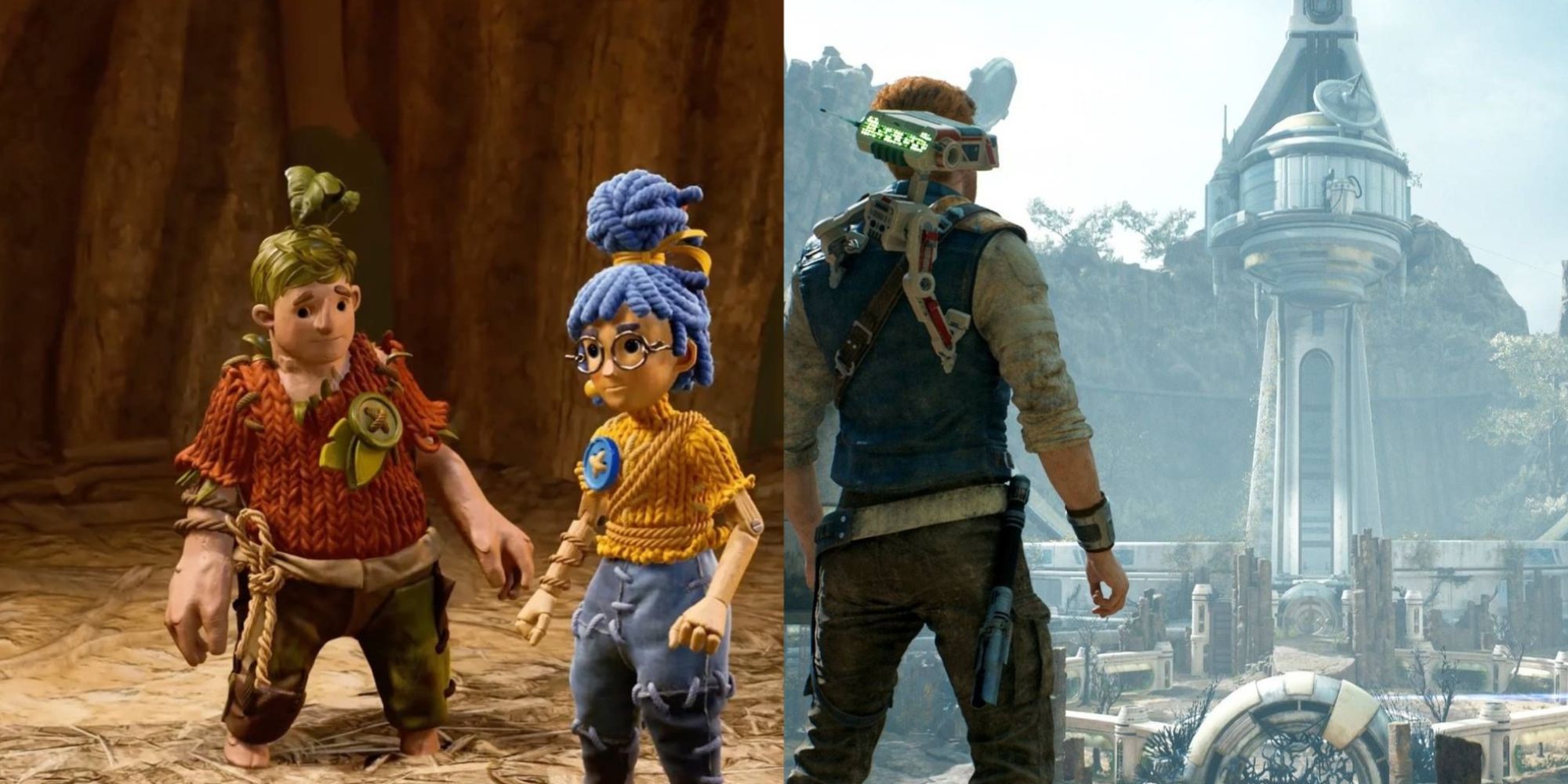
Beyond the Bland: Celebrating Adventure Games with Unforgettable Characters
Adventure games, a genre known for its intricate puzzles, captivating narratives, and immersive worlds, often live and die by the strength of its characters. While breathtaking visuals and clever mechanics are important, it’s the memorable figures we meet along the way that truly resonate, leaving a lasting impression long after the credits roll. These characters, often quirky, flawed, and utterly unique, are the heart and soul of their respective games, driving the narrative forward and imbuing the experience with a profound sense of connection.
This article will delve into the world of adventure games that have dared to step away from stereotypical heroes and damsels in distress, focusing instead on the titles that have gifted us with truly unforgettable characters. We’ll explore what makes these characters stand out, how their personalities are interwoven with the gameplay, and the impact they have on the overall adventure game experience.
The Unlikely Hero: Embracing Flaws and Quirks
One of the most effective ways to create a memorable character is to embrace imperfection. The days of the flawless, stoic hero are largely behind us, replaced by protagonists who are relatable precisely because of their flaws.
-
Guybrush Threepwood (Monkey Island Series): Perhaps the quintessential example of the unlikely hero, Guybrush is a lovable buffoon with aspirations of becoming a mighty pirate. His naivete, awkwardness, and penchant for hilarious missteps make him incredibly endearing. He’s not strong, skilled, or particularly intelligent, but his unwavering optimism and surprising resourcefulness consistently save the day. Guybrush’s charm lies in his vulnerability; he’s a character we root for precisely because he’s so obviously out of his depth.
-
Manuel "Manny" Calavera (Grim Fandango): A travel agent working in the Department of Death, Manny is a cynical and world-weary character caught in a web of corruption and deceit. He’s not inherently good, often driven by self-preservation and a desire to escape his own grim existence. Yet, beneath his hardened exterior lies a sense of loyalty and a growing compassion for those around him. Manny’s journey from jaded salesman to reluctant hero is a testament to the power of character development, showcasing how even the most flawed individuals can find redemption.
-
April Ryan (The Longest Journey): A struggling art student grappling with identity and purpose, April is far from the traditional image of a chosen one. She’s insecure, uncertain, and prone to self-doubt. However, when thrust into a conflict between science and magic, she rises to the occasion, discovering her inner strength and embracing her destiny. April’s vulnerability and relatability make her a compelling protagonist, demonstrating that heroism can come from the most unexpected places.
Beyond the Protagonist: Enriching the World with Eccentric Supporting Characters
While a strong protagonist is essential, a cast of memorable supporting characters can elevate an adventure game from good to truly great. These characters populate the world, adding depth, humor, and emotional resonance to the narrative.
-
LeChuck (Monkey Island Series): The villainous pirate LeChuck is far more than a simple antagonist. He’s a flamboyant, over-the-top character with a penchant for dramatic pronouncements and outlandish schemes. His unbridled ambition and theatrical personality make him a delightfully entertaining foil to Guybrush’s bumbling heroism. LeChuck’s presence is a constant source of comedic tension, and his increasingly bizarre transformations (ghost pirate, zombie pirate, demon pirate) ensure he remains a captivating and unforgettable villain.
-
Glottis (Grim Fandango): Manny Calavera’s loyal companion, Glottis, is a lovable demon mechanic with an insatiable appetite for speed and excitement. His oversized frame, booming voice, and unwavering optimism provide a much-needed counterpoint to Manny’s cynicism. Glottis is more than just comic relief; he’s a true friend, always willing to lend a helping hand (or a massive tire) to Manny’s cause. His dedication and unwavering loyalty make him one of the most endearing characters in adventure game history.
-
Crow (Dreamfall: The Longest Journey): A sarcastic and cynical bird with a penchant for witty remarks, Crow is April Ryan’s unlikely companion in Dreamfall. His biting humor and irreverent attitude provide a welcome dose of levity in a game that often deals with serious themes. Crow’s cynicism masks a deep-seated loyalty to April, and his unwavering support is crucial to her success. He’s a character who is both hilarious and surprisingly insightful, adding a unique dimension to the narrative.
Character-Driven Gameplay: When Personality Shapes the Puzzles
The best adventure games seamlessly integrate character personalities into the gameplay mechanics. The way a character interacts with the world, solves puzzles, and makes decisions should be consistent with their established personality.
-
Guybrush Threepwood’s "Insult Swordfighting" (Monkey Island Series): This iconic gameplay mechanic is a perfect example of character-driven design. Guybrush’s lack of actual fighting skills is compensated by his quick wit and ability to learn and repeat insults. The puzzle is not about brute force but about understanding and exploiting the weaknesses of his opponents, reflecting Guybrush’s personality as a clever and resourceful underdog.
-
Manny Calavera’s Dialogue Choices (Grim Fandango): Manny’s dialogue options often reflect his cynical and pragmatic nature. He’s not afraid to lie, cheat, or manipulate others to achieve his goals. However, the player is also given opportunities to show Manny’s growing compassion and sense of justice. These choices allow the player to shape Manny’s character arc and influence the outcome of the story.
-
Dialogue and Exploration as Character Development (Life is Strange): While perhaps pushing the boundaries of a traditional adventure game, Life is Strange utilizes dialogue and exploration as core mechanics that directly impact the development of its protagonist, Max Caulfield. The choices the player makes as Max, both in conversation and through investigating the environment, directly shape her relationships, her understanding of her powers, and ultimately, her character. The game demonstrates how gameplay can be intrinsically linked to exploring the inner world of a character.
The Enduring Legacy: Why Unique Characters Matter
The impact of memorable characters extends far beyond the immediate gameplay experience. They become ingrained in our memories, influencing our perception of the game and the genre as a whole.
-
Emotional Connection: Well-developed characters allow us to form emotional connections with the game world. We care about their struggles, celebrate their victories, and mourn their losses. This emotional investment makes the experience more meaningful and memorable.
-
Theme Exploration: Unique characters can serve as vehicles for exploring complex themes and ideas. Their personal journeys can shed light on issues of identity, morality, and the human condition.
-
Lasting Impact: Memorable characters transcend the limitations of their respective games. They become cultural icons, inspiring fan art, cosplay, and countless discussions. They are a testament to the power of storytelling and the enduring appeal of well-crafted characters.
In conclusion, adventure games with unique and compelling characters offer a richer and more rewarding experience. By embracing flaws, crafting memorable supporting casts, and integrating personality into gameplay, developers can create characters that resonate with players on a deeper level. These characters not only drive the narrative forward but also leave a lasting impact, solidifying their place in the annals of gaming history. The future of adventure games hinges on continuing to push the boundaries of character creation, crafting figures that are not just pixels on a screen, but fully realized individuals with their own hopes, dreams, and flaws, ready to embark on unforgettable adventures. The more games dare to step away from the bland and embrace the unique, the more vibrant and engaging the adventure game landscape will become.

